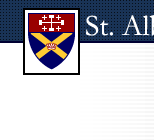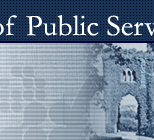|
Folks: This is another news
article that’s important if perhaps boring. I know,
there are a lot of these. The main quote (if you’re
taking notes) is: "It's good to be able to know how to
pass a test. I'm all for that. But the big issue in studying
is to turn yourself into a student and be curious and want
to keep on learning." When you to college in the fall,
you’ll face several challenges.
First, there will be (almost) no one looking over your shoulder.
You want to sleep and play, and not attend classes and study?
You go, boy! You want to try getting good grades in college
by “improvising” your way through a paper the
night before it’s due? You go, girl! When Ross Perot
(look him up) gave graduation speeches, he always asked the
kids who got “A’s and B’s” to stand
up. Then he asked the kids who got “B’s and C’s”
and had to work hard for them to stand up. Then he said to
the kids who got the “A’s and B’s”
to look at the people who would be their
future bosses. His point was that the kids who had learned
to work hard were the ones he’d bet on to be successful.
Learning to study is as much a subject as learning English,
although (as the article
points out) it’s seldom taught. When Kate Petty (my
stepdaughter who worked at SPS this summer) was taking senior
AP English, the teacher handed out about 50 questions that
had to be answered about the play Othello. She learned to
go beyond just reading the play and answering simple questions
in
class or on a test. She got long lists of questions on ALL
the works she stud ied that year. It was scary! I do hope
you’ve learned to study during high school. I can assure
you that in college they “pump up the volume”
(ask an older sibling about that song).
I have only one concrete suggestion for you about handling
your time and classes in college. I’ve given it to all
the kids (mine included) I’ve known for the past ten
years or so. One of the difficulties in college (see above)
is that you could study all your waking hours. Or you could
study just enough to stay out of trouble with the Dean. It’s
very difficult to figure out how much time to spend on your
classes vs. your new friends, sports, partying, whatever.
Just remember that when you get out of college, you’ll
be working at least forty hours a week. College is an investment
by you, not just your family, and you “owe” yourself
(and maybe your family, too) as much time each week as you’ll
spend later to earn a living. When you go to college, count
the number of hours you’re spending on classes, labs,
homework – all the time you’re spending on your
studies. See if you’re spending forty hours a week at
it. If you are, great. Then stop. You’ll do fine. If
you’re not spending the time, and you’re not satisfied
with your grades, invest more time. It won’t kill you.
I have a friend who took a year off after Harvard to work
with me in Vice President Gore’s National Performance
Review and then with the Chief of Staff in the White House.
He then went back to Harvard Law School where he was on the
Law Review. After he graduated and was on his way to clerking
with a Federal appeals court judge on the West Coast, I told
him about the “forty
hour rule” for undergraduates. He surprised me by saying
that if he’d followed that rule, he’d REALLY have
been successful in college and law school! So there you are.
Steve’s practicing law in Boston now, and hopes to return
to Texas soon. He’ll be back into public service not
too long after that, and with luck you could come back to
Washington and work on his staff here. I’ll recommend
you.
Bob
Knisely
WebLink Citations:
1 ) "Teaching
Students Their Job: Schools Often Overlook the Need to
Put Study Skills in the Curriculum" By Valerie Strauss,
Washington Post Staff Writer, January 21, 2003; Page A06
|




